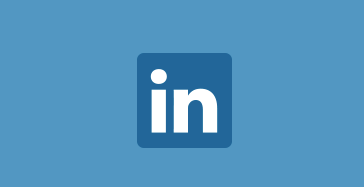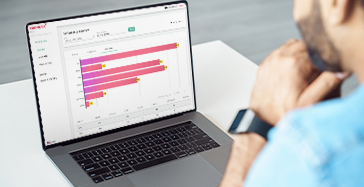Thought Leadership
How Hotels Innovate Through FREE PMS API Hospitality Technology Integrations

Table of Contents
What is the evolution of hospitality technology integrations?
Why are variety and competition game-changers in hospitality technology integrations?
Why does recovering from the pandemic require open hospitality technology integrations?
What is the future of hospitality technology integrations?
Ask any hotelier or hotel technology company about their biggest pain points and inevitably they will mention hospitality technology integration. Interfacing between legacy hotel Property Management Systems (PMS) and third-party systems has plagued the hospitality industry for years. HTNG was created some 20 years ago to create a communication messaging that was standard for hotel systems and it made some initial progress. But even today, connecting hotel systems is mostly a pain.
With the onslaught of COVID-19 upending the travel industry, the stakes for the hotel sector couldn’t be higher. Hotels need to change their service models to support safety concerns while fighting for their share of the small demand in the marketplace. The good news is that new and innovative hospitality technology solutions are out there that can help these hotels. The bad news is that they need some way to integrate with the hotels’ PMS systems.
What is the evolution of hospitality technology integrations?
The PMS is the central nervous system for any hotel. Twenty years ago, the big PMS software companies took this advantageous position to start reaching into every part of a hotel’s need: distribution, business intelligence, revenue management, sales & catering, etc.
Many hotel CIO’s were enamored with the concept of the PMS company being a one-stop-shop. It made their job easier – there was only one throat to choke, as they say. However, specialist software companies began to offer better, more focused solutions to specific areas of the hospitality business. As such, the big hotel brands started to demand that PMS companies exchange data with their preferred software vendors. The PMS companies begrudgingly complied with the development of API’s (Application Programming Interface). The technology integration process was costly and took a long time.
Flash forward to today. What exactly is integration in the hospitality industry?
The same PMS companies that started it all are still reluctant to undermine their extended services by connecting to third-party software solutions. But, the landscape has changed dramatically. HTNG was able to help and it made some strides.
- Cloud technology in the hospitality industry. The cloud made it possible for small PMS companies to quickly get into the marketplace and put pressure on the legacy players. These cloud-based systems don’t do everything – but they will integrate with nearly anyone. This opens the door for innovation.
- Small and start-up technology companies in hospitality. Small specialist software companies can now integrate with these new PMS companies directly or through API marketplaces, such as Siteminder and Hapicloud.
Why are variety and competition game-changers in hospitality technology integrations?
Hotel IT staff have woken up to all of the available new possibilities. Their software choices, now, can have a direct influence on cost efficiency and revenue. Plus, hotels have evolved. Many new hotel concepts have established a corner in a marketplace that was once dominated by 300-room Marriotts and Sheratons. Unique hotel models have unique technology needs. As the next step from HTNG’s initial standards, Hotel CIOs now want a tech stack that reflects the face of the hotel and can help further differentiate the hotel from the competition.
The large PMS companies are well aware of this trend and are morphing their business model in response. API integration is no longer a dirty word for them, but don’t expect a free lunch. These legacy PMS companies still know they hold a huge market share. As such, they still have a large amount of control over the timing and price of hospitality technology integrations. They are working towards providing a competitive model to the new independent API marketplaces, where they can be the source for third-party software integrations within their environment and on their terms. Will these be truly “open” systems as start-up cloud PMS options and marketplaces are? That depends on your perspective. Either way, competition is generating innovation, and that is good for hotels that are in desperate need of innovation right now.
Why does recovering from the pandemic require open hospitality technology integrations?
Cost-cutting has reached new levels with COVID. Unfortunately, in the United States, hotels will continue to see properties struggle into 2021 and beyond. Demand will be down for a while and hotels will continue to be squeezed by local safety ordinances as well as guest concerns. So, the question is, how do we change the way we do business so we can survive, all the while relying on less revenue?
The answer? Hotels need better hospitality technology systems and integrations. They need a tech stack that allows them to become more innovative, nimble, and customer-centric. They need to be able to try new ideas revolving around contactless guest interfacing. And, they must be able to discover creative ways to generate more revenue from guests who are paying lower room rates. There are many interesting options out there, but which ideas are best? Savvy CIOs know it will be a matter of trial and error. They will want to enable and disable applications quickly, and take advantage of the free trials that come with many SaaS solutions.
API integration may hold the key to business success and CIOs will put pressure on their PMS vendors to lower the hurdles to integration. Once again, though, the PMS companies’ ability to play nicely in the sandbox with others will be tested. For example, PMS integrations for free software trials should, in turn, be free.
What is the future of hospitality technology integrations?
Large PMS companies will struggle to turn the battleship. Size may continue to make innovation hard. But, change is happening as we speak. In the meantime, start-ups and smaller companies are creating new app ecosystems that are very attractive to some hotel groups. The good news is that hotels will benefit from competition-driven innovation when it comes to hospitality technology systems and integrations, which currently could mean that hotels get to keep their doors open. Established vendors such as Oracle are making inroads with their new “Oracle Hospitality Integration Platform,” as is Protel with “Protel I/O.”
COVID is forcing people to think differently. There is a prime opportunity at the moment for hotels to experiment with new hospitality technology systems and integrations to benefit from innovative features and functionality at a better price point. Legacy systems, like the PMS, will continue to play a vital role as technology evolves. But API integration will be essential to enable endless possibilities for innovation, to give hoteliers a competitive edge, and to help them ride out the pandemic.


